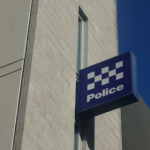The Cop Who Helped Reduce Street Crime

Rather than employing heavy-handed tactics and a punitive approach when dealing with anti-social teens, police in the Western Sydney suburb of Blacktown have been tackling youth crime a different way. And the results speak for themselves.
When police superintendent Mark Wright first took up his post in Blacktown many years ago, he was faced with nightly gang violence, vandalism, threats and a community living in fear.
But the situation is very different today, and it’s partly due to connecting with young people and helping them to stay off the streets by providing them with meaningful activities, and a sense of self-worth.
A melting pot
Blacktown is the second largest local government area by population in New South Wales. It is home to 340,000 people from more than 140 different ethnic backgrounds.
It’s a melting pot of races and cultures, and unrest seems to have always been part of the suburb’s history.
For years, it had a reputation as dangerous place where people don’t venture out after dark. And around 2003 after it became home to an influx of Sudanese refugees, it got worse – much worse.
These young men, who’d escaped from horrendous lives as boy soldiers or otherwise exposed to shocking violence, were often unable to completely shed their pasts, and some brought their pent up anger and resentment onto the streets.
Some would roam in intimidating groups, attacking shop keepers and engaging in fights with young Pacific Islanders or others who lived in the neighbourhood.
It was a broken community and something needed to be done. Frustrated police officers would ask for more resources and attempt to arrest their way out of the problem, which did little more than create tension and resentment between young people and members of the force.
But superintendent Wright decided to do things differently.
A different approach
Instead of wielding the long arm of the law, officer Wright established a program with local leaders called Com4Unity which began in 2010 using carefully designed activities and programs to engage youths.
He engaged with youths and encouraged them to attend activities like boxing and other sports at the local PCYC – programs led by community role models such as Sudanese Youth Worker John Garang Kon and soccer coach Abraham Ajok.
Engaging with youths and bringing them together has helped alleviate boredom and tensions, giving them constructive ways to expend their energy. It has helped foster a different view of one another and of the police.
The initiative has had a remarkable effect on the suburbs, reducing the number of teens roaming the streets at night as well as the level of youth violence.
The mood of the neighbourhood has changed too, and residents are now less fearful.
Officer Wright is being hailed a hero from all around the globe – law enforcement authorities from as far as New York, Canada and Australian cities such as Melbourne have come to learn how this battling suburb has returned from the brink.
Locking up teens is not the answer
Innovative solutions are required for dealing with youth crime, as it has been shown time and again that locking kids up is not the way to reduce crime.
Far from setting wayward youths onto the right path, incarceration often does the exact opposite – setting them up for a lifetime of re-offending by stigmatising them, taking them away from family and friends, and connecting them with other offenders.
Together behind bars, marginalised youths can form strong bonds in their collective isolation – bonds which serve to reinforce their beliefs and attitudes towards society, because they are not shown any other positive alternatives.
We know from Australian research and overseas models that by integrating these troubled youths back into society, we can better help them to turn their lives around.
Youth advocates in Australia have long argued that instead of locking young offenders away, we should be focusing on addressing underlying causes for their antisocial behaviour, and help them to address their personal demons.
The results of the Blacktown Com4Unity programme gives weight and credibility to this argument, demonstrating that alternatives can be successful when communities rally behind them.








